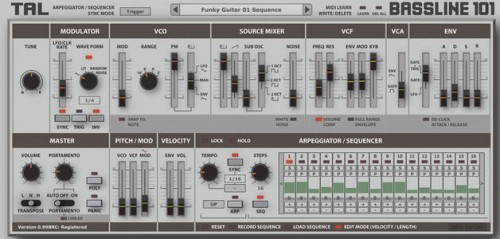

Firstly, the plugin’s quality, which varies from one to another. The only thing that matters is whether it sounds convincing or not, and that depends on a few things. If any of those things are true, then a bass VST is absolutely a valid choice. You don’t think the project merits the expense/hassle of bringing in a bassist.If you are using a bass VST, it’s probably for one of the following reasons. In my opinion, it’s a bit of a pointless debate and makes little difference if it’s true or not. Some people will always say a plugin can never sound as good as a real bass. Now, we can all share the sound of his acoustic bass in a plugin that weighs in at just around 7MB. Redjoy Reza, an audiographer and musician (as well as the developer behind our free BPB Cassette Drums plugins), created Sienna in his studio. The Sienna Bass acoustic bass plugin is Windows only, but hopefully, a macOS version will follow. All the so-called “Linux” distributions are really distributions of GNU/Linux.Soundmagic offers Sienna Bass, a FREE acoustic bass plugin for Windows. Linux is normally used in combination with the GNU operating system: the whole system is basically GNU with Linux added, or GNU/Linux.

The kernel is an essential part of an operating system, but useless by itself it can only function in the context of a complete operating system. Linux is the kernel: the program in the system that allocates the machine’s resources to the other programs that you run. There really is a Linux, and these people are using it, but it is just a part of the system they use.

Through a peculiar turn of events, the version of GNU which is widely used today is often called “Linux”, and many of its users are not aware that it is basically the GNU system, developed by the GNU Project. Many computer users run a modified version of the GNU system every day, without realizing it. Linux is not an operating system unto itself, but rather another free component of a fully functioning GNU system made useful by the GNU corelibs, shell utilities and vital system components comprising a full OS as defined by POSIX.

What you’re referring to as Linux, is in fact, GNU/Linux, or as I’ve recently taken to calling it, GNU plus Linux.


 0 kommentar(er)
0 kommentar(er)
